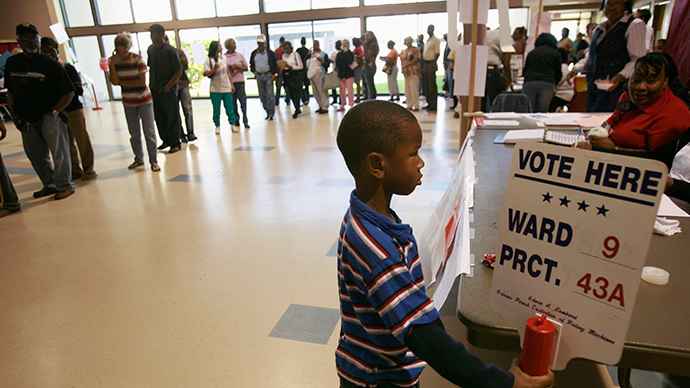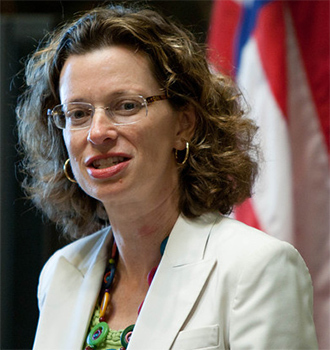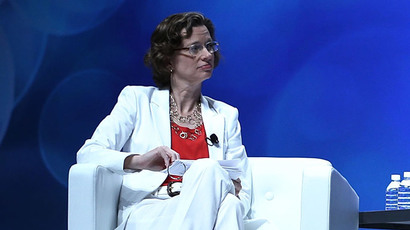Democrats to suffer big losses if black voters ignore midterms - report

With the US Senate up for the taking this November election, a prominent pollster has warned in a confidential memo that Democrats face “crushing” losses nationwide if the party cannot turn out black voters to the polls, according to a new report.
Cornell Belcher, a former pollster for President Barack Obama, sounded the alarm in an Oct. 1 memo prepared for an undisclosed recipient, echoing other indications that Democrats will lose the US Senate, among other positions across the United States, thanks in part to a shortfall in voting support this midterm election.
“African-American surge voters came out in force in 2008 and 2012, but they are not well positioned to do so again in 2014,” Belcher wrote, according to The New York Times. “In fact, over half aren’t even sure when the midterm elections are taking place.”
The memo spoke to the conundrum facing the Democratic Party. To maintain control of the US Senate, the party must turn out voters, especially African Americans, in four key states with Senate races up for grabs. Yet the man who could boost enthusiasm most among black voters - President Obama - is the same person mainstream Democratic candidates are trying to disassociate from on the campaign trail.

Because of unpopular policies associated with Obama - like the Affordable Care Act, known as Obamacare, or his lackluster initiatives on oil and gas drilling, as is alleged by one candidate - the second-term president is persona non grata for Democratic Senate candidates in battleground states like Georgia, Louisiana, North Carolina, and Arkansas.
The significant numbers of registered black voters in these southern states are now the target of both clandestine voter-outreach efforts led by the White House and more visible operations that seek to register, and turn out, voters in November.
According to the Times, Obama has participated in radio interviews, telephone calls, and video advertisements that target African American communities in battleground states.
“I’ll bet there are a whole bunch of folks listening to your show who may not even know that there’s an election going on,” Obama said on Rickey Smiley’s Atlanta-area radio show, the Times reported. “I need everybody to go vote. The election’s on Nov. 4. You can go to a website, Iwillvote.com, to find out what your polling place is.”

Meanwhile, prominent Obama surrogates, including former President Bill Clinton and members of the Congressional Black Caucus, have stepped in to campaign in these key states, attending black churches and other venues to encourage turnout.
“Anybody who looks at the data realizes that if the black vote, and the brown vote, doesn’t turn out, we can’t win. It’s just that simple,” US Rep. Marcia L. Fudge (D-Ohio), the chairwoman of the Congressional Black Caucus, told the Times, adding the Latino vote to the midterm equation. “If we don’t turn out, we cannot hold the Senate.”

Belcher, the pollster, told the Times that despite skeptics, especially Republican doubters, he believes Democrats can win in these races if turnout, especially among African-American communities, exceeds traditionally depressed expectations that come with midterm elections.
“If you tell me in Georgia that, on the closing of the polls, the electorate is 32 percent African-American, I’m going to tell you we have probably elected a Democratic senator,” Belcher said. “That’s not theory. It’s basic math.”
Yet in these four key states, Democratic Senate candidates, both challengers and incumbents, have calculated against embracing Obama, adding to angst among Democrats nationwide.
For instance, Michelle Nunn, the Democratic Senate challenger in Georgia, has not said whether or not she would have voted for the Affordable Care Act, the politically unpopular healthcare law, had she been in office during its passage.
Despite its unpopularity, though, Americans seem to be warming to the law’s features. In August, the Kaiser Family Foundation reported that though 53 percent of respondents viewed the law unfavorably, even more - 60 percent - said they did not want the law repealed.














